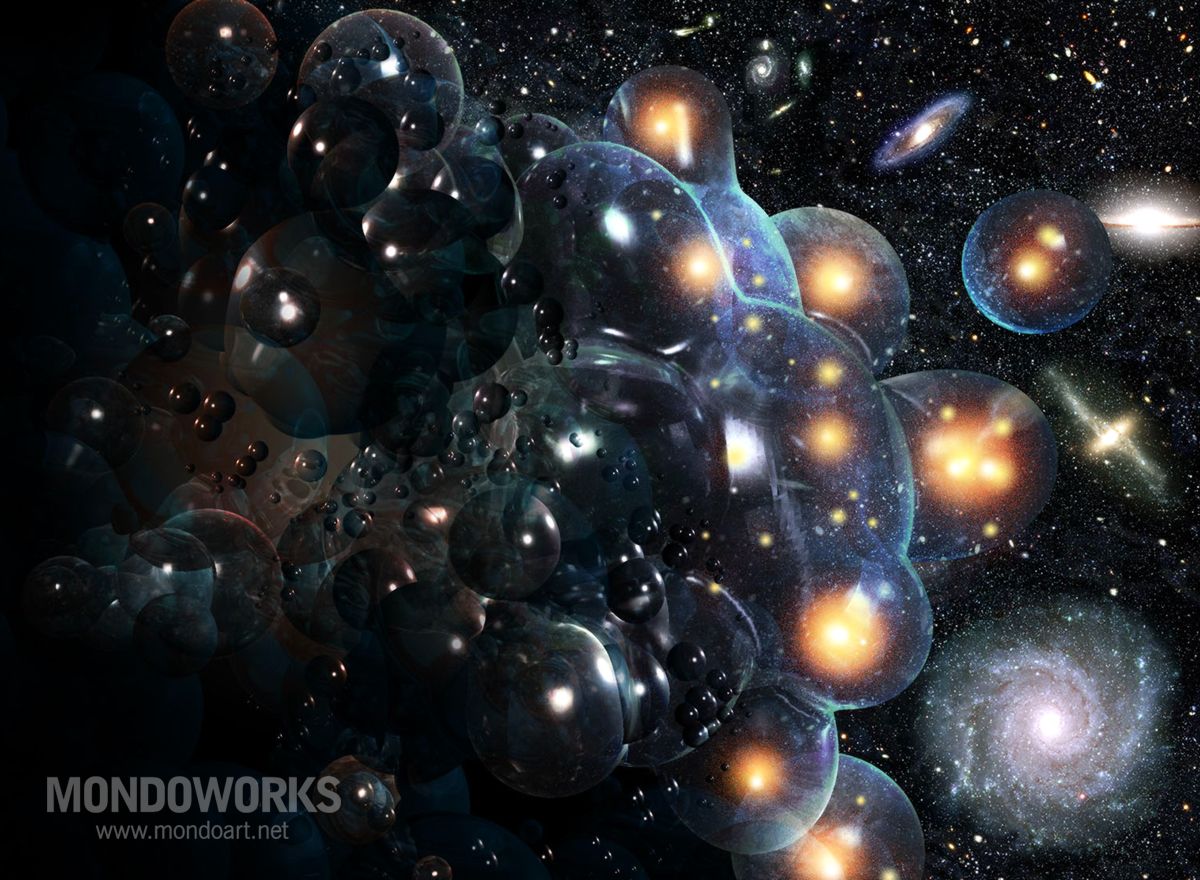A Bubble Universe
 Inflation, or the inflationary universe theory, was originally developed as a way to overcome the few remaining problems with what was otherwise considered a successful theory of cosmology, the Big Bang model.
Inflation, or the inflationary universe theory, was originally developed as a way to overcome the few remaining problems with what was otherwise considered a successful theory of cosmology, the Big Bang model.
In 1979, Alan Guth introduced the inflationary model of the universe to explain why the universe is flat and homogeneous (which refers to the smooth distribution of matter and radiation on a large scale). The basic idea was that the universe underwent a period of rapidly accelerating expansion a few instants after the Big Bang. He offered a mechanism for causing the inflation to begin: false vacuum energy. Guth coined the term “inflation,” and was the first to discuss the theory with other scientists worldwide.
In 1983, it was shown that inflation could be eternal, leading to a multiverse in which space is broken up into bubbles or patches whose properties differ from patch to patch spanning all physical possibilities. Paul Steinhardt, who produced the first example of eternal inflation, eventually became a strong and vocal opponent of the theory. He argued that the multiverse represented a breakdown of the inflationary theory, because, in a multiverse, any outcome is equally possible, so inflation makes no predictions and, hence, is untestable. Consequently, he argued, inflation fails a key condition for a scientific theory.
Both Linde and Guth, however, continued to support the inflationary theory and the multiverse. Guth declared: ‘It’s hard to build models of inflation that don’t lead to a multiverse. It’s not impossible, so I think there’s still certainly research that needs to be done. But most models of inflation do lead to a multiverse, and evidence for inflation will be pushing us in the direction of taking the idea of a multiverse seriously. According to Linde, “It’s possible to invent models of inflation that do not allow a multiverse, but it’s difficult. Every experiment that brings better credence to inflationary theory brings us much closer to hints that the multiverse is real.” *Wiki
For commissions, syndications or to be added to our mailing list please contact [email protected]